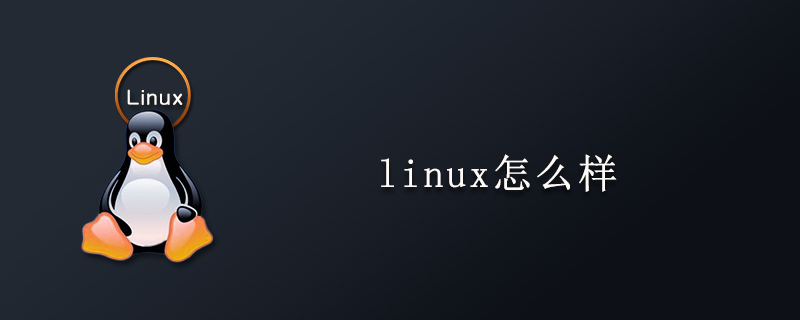
Linux is mainly used as part of a Linux distribution (often called a "distro"). These distributions are written by individuals, loosely organized teams, as well as commercial and volunteer organizations.

They usually include other system software and application software, as well as an installation tool to simplify the initial system installation, and integrated management to allow software installation and upgrade device. Most systems also include programs that once ran on BSD, such as XFree86, which provides a GUI interface. (Recommended learning: linux operation and maintenance)
A typical Linux distribution includes: Linux kernel, some GNU program libraries and tools, command line shell, graphical interface X Window system and corresponding desktop environment, such as KDE or GNOME, and contains thousands of applications ranging from office suites, compilers, and text editors to scientific tools.
Linux is the collective name for a class of Unix computer operating systems. The name of the kernel of the Linux operating system is also "Linux". The Linux operating system is also the most famous example of the development of free software and open source.
Strictly speaking, the word Linux itself only refers to the Linux kernel, but in fact people are accustomed to using Linux to describe the entire operating system based on the Linux kernel and using various tools and databases of the GNU Project. Linux is named after computer amateur Linus Torvalds.
Origin
Linux is a unique operating system that was born on the Internet, grew up on the Internet, and matured on the Internet. In 1991, Finnish college student Linus Torvalds came up with the idea of developing a free UNIX operating system. That year, Linux was born. In order to prevent this fledgling operating system from dying, Linus released his work Linux through the Internet. Since then, a large number of well-known and unknown computer hackers and programmers have joined the development process, and Linux has gradually grown.
Linux initially required that all source code must be made public, and no one was allowed to profit from Linux transactions. However, this ideal of pure free software is detrimental to the popularity and development of Linux, so Linux began to turn to GPL and became a major member of the GNU camp.
Linux relies on its excellent design, extraordinary performance, and the strong support of internationally renowned companies such as IBM, INTEL, CA, CORE, ORACLE, etc., its market share has gradually expanded, and it has gradually become one of the mainstream operating systems. .
The above is the detailed content of how about linux. For more information, please follow other related articles on the PHP Chinese website!